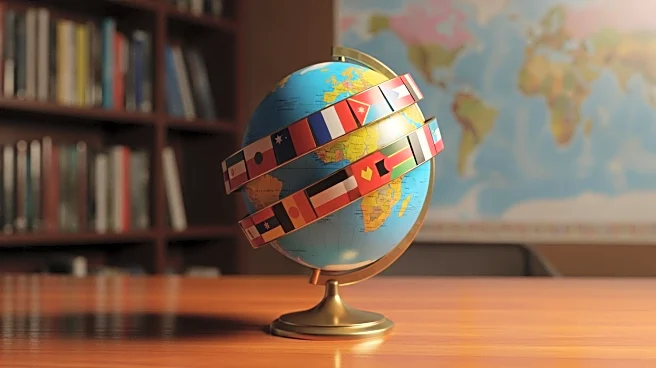What's Happening?
International scholars are increasingly opting out of attending conferences in the United States due to concerns over the current political climate under President Trump. The deployment of National Guard
troops and increased ICE arrests have contributed to a sense of unease among foreign academics. Some scholars, like David Murakami Wood from the University of Ottawa, are boycotting U.S. conferences in solidarity with countries affected by U.S. visa policies. Others, such as Nicolás Palacios from Switzerland, express fears of being targeted by policing institutions like ICE. This trend is leading to the relocation or cancellation of several major academic conferences originally planned for the U.S.
Why It's Important?
The decision by foreign scholars to skip U.S. conferences has significant implications for the academic community. U.S. conferences are often pivotal for career advancement, providing opportunities for networking and collaboration. The absence of international scholars could diminish the diversity and richness of academic discourse. Additionally, the relocation of conferences could impact local economies that benefit from such events. The situation highlights broader concerns about the U.S.'s global image and its attractiveness as a destination for international academics.
What's Next?
As the political climate continues to evolve, more conferences may be relocated or canceled, affecting both the academic community and local economies. Institutions may need to address these concerns to maintain their international standing and ensure the continued participation of global scholars. The academic community may also see increased discussions on how to navigate and respond to political challenges affecting scholarly exchange.
Beyond the Headlines
The reluctance of foreign scholars to attend U.S. conferences underscores deeper issues related to academic freedom and the politicization of science. Ethical considerations are prompting some academics to boycott U.S. events, reflecting broader concerns about the erosion of democratic norms and the impact of political decisions on scientific research and collaboration.









